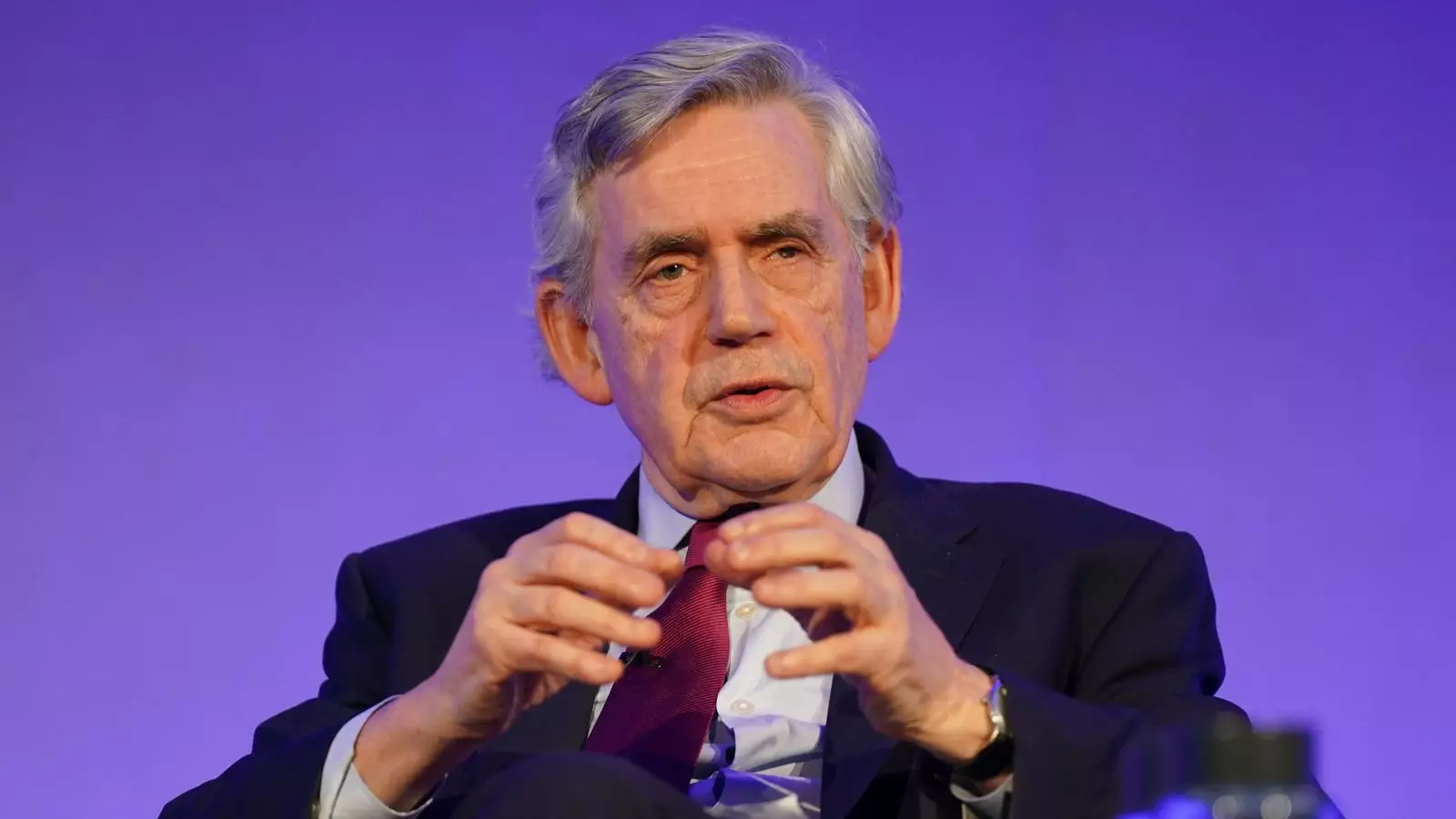The recent announcement from Labour leader Sir Keir Starmer regarding the winter fuel payments for pensioners reveals a complicated intersection of governance, economic realities, and political survival. While many may laud this decision as a win for fairness and social justice, it also raises questions about the motivations behind such a significant policy reversal. Former Prime Minister Gordon Brown asserts that the government must be equitable toward its pensioners, emphasizing the importance of universality in welfare programs—a notion that gained traction during his tenure.
Winter fuel payments were initially introduced as a blanket benefit, a recognition of the hardship faced by many older citizens during harsh winters. However, the apparent backtracking from the means-test is not just about compassion; it comes on the heels of a significant political backlash. Labour’s recent local election losses cannot be ignored, as they cast a shadow on the party’s credibility and signal the electorate’s deep dissatisfaction. Is Starmer genuinely committed to supporting pensioners, or is he merely responding to the harsh winds of political change?
The Case for Means Testing: Examine the Haves and Have-Nots
Brown’s perspective that the wealthiest should be excluded from these payments presents an intriguing dilemma. On the one hand, it makes pragmatic sense to redirect resources towards those who genuinely need assistance. After all, as the saying goes, “charity begins at home,” and prioritizing aid for struggling pensioners aligns with a more equitable distribution of wealth. However, one must consider the emotional and social ramifications of such a decision.
Means testing could potentially alienate those who have spent their lives contributing to the community and economy. It sends a disheartening message: your contributions may not merit universal respect or assistance. In a society that prides itself on fairness and equal opportunity, it seems counterintuitive to penalize individuals for their success, especially those who have served their country and community.
Furthermore, the prospect of saving £1.5 billion a year may tantalize policymakers, yet the real cost is measured in the dignity stripped from those who find themselves suddenly deemed “too affluent” for basic support. The balance between fiscal responsibility and social equity remains a precarious tightrope. Can a government genuinely advocate for the welfare of its citizens while simultaneously calculating the monetary bottom line?
The Economic Context: A Complicated Recovery
Starmer’s stance seems rooted in the belief that the economy is improving to the point where additional support can be afforded to pensioners. However, the reality of economic recovery in a post-pandemic world remains complex. The cost of living crisis persists, and many are feeling the ripple effects of inflation, stagnant wages, and an unpredictable job market. Consequently, the assertion that more pensioners can “feel” the benefits of economic recovery may be overly optimistic.
This optimism might resonate with some, but it simultaneously raises the question: does economic growth alone equate to individual improvement in quality of life? For many pensioners, the daily struggles of making ends meet can overshadow this purported economic progress. Economists and policymakers alike must tread carefully, as they risk becoming disconnected from the lived experiences of those they aim to serve.
The Inherent Value of Universal Benefits
Brown’s advocacy for a universal winter fuel payment cannot be dismissed lightly. Universal benefits can serve not only as a safety net but also as an empowering symbol of societal recognition that everyone deserves dignity and support, regardless of their earnings. There’s an intrinsic value in ensuring that no individual falls into poverty while contributors to society, particularly the elderly who have already paid their dues, are left vulnerable.
In light of these discussions, the political winds suggest that the Labour Party must recalibrate its social policies to resonate more closely with the realities faced by ordinary citizens. The decision to reconsider winter fuel payments is not simply about numbers on a balance sheet; it encapsulates a profound moment of truth facing the party—what kind of society does it aim to build, and how can it genuinely support those who need it most?
As we navigate these challenging waters, one thing remains clear: the fate of winter fuel payments is a litmus test for the Labour Party’s commitment to fairness and the dignity of its elderly citizens amidst an ever-changing political landscape.



Leave a Reply